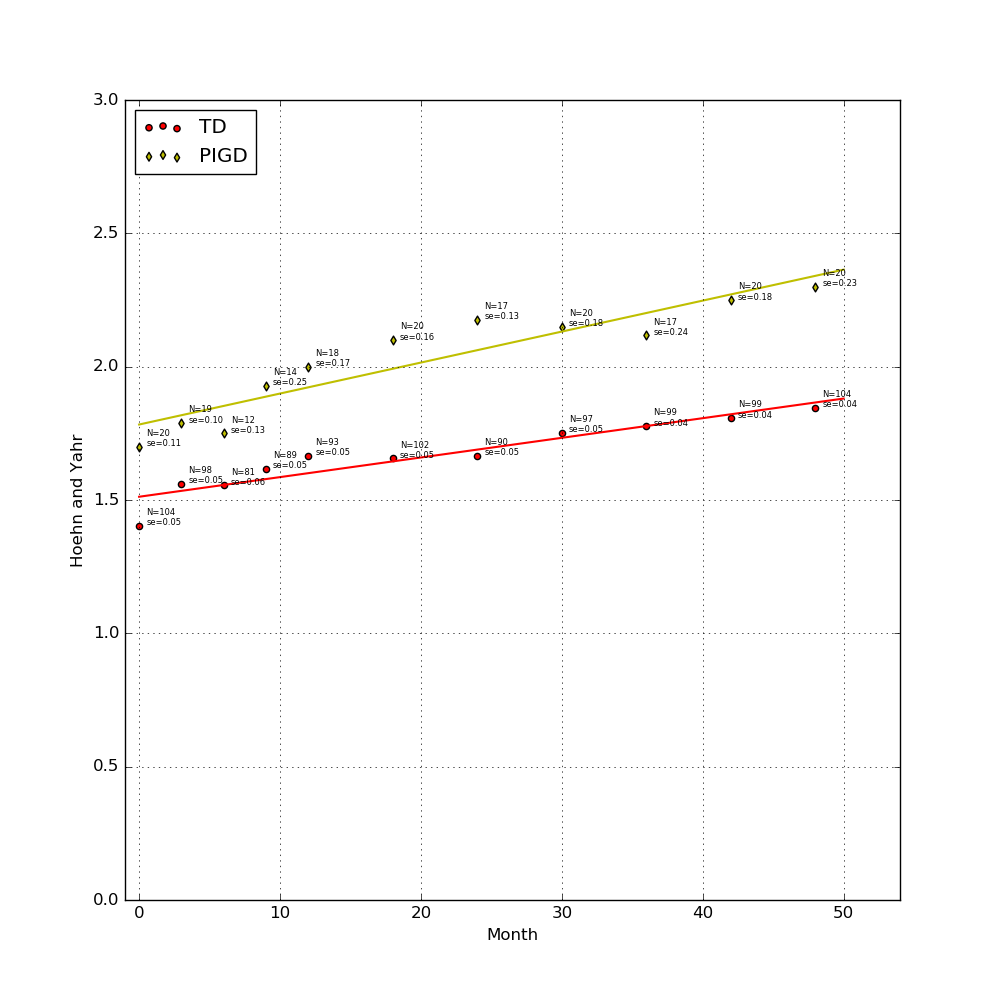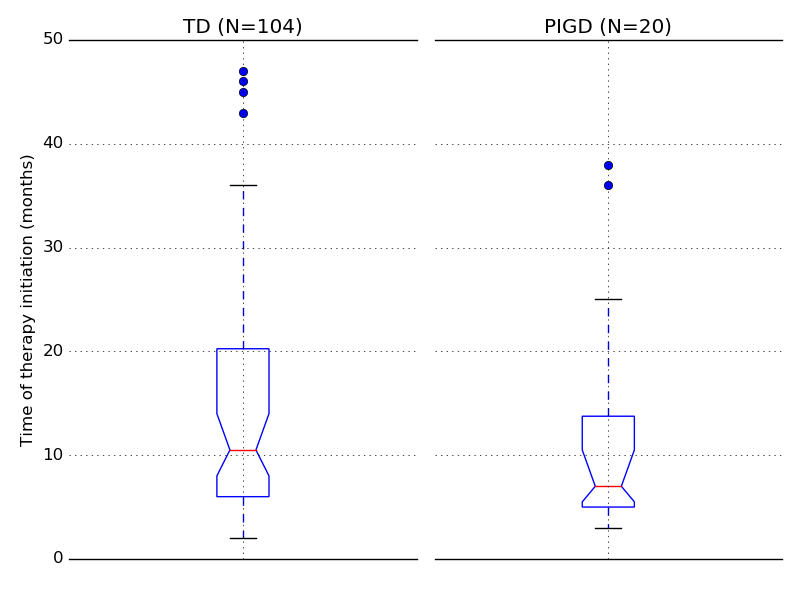Session Information
Date: Monday, June 5, 2017
Session Title: Parkinsonism, MSA, PSP (Secondary and Parkinsonism-Plus)
Session Time: 1:45pm-3:15pm
Location: Exhibit Hall C
Objective: Analyze the disease progression and time of therapy initiation for tremor dominant (TD) and postural instability gait disorder (PIGD) subtypes in the PPMI cohort.
Background: Previous studies have shown that the PIGD subtype is associated with faster disease progression and shorter time to initiation of therapy. Additionally, they have shown that the classification of a patient into the PIGD subtype is unstable. However, current evidence is limited due to a short observation period and small cohorts.
Methods: We analyzed longitudinal data from the PPMI study including both TD and PIGD patients. We accounted for the reported instability of the PIGD classification and carefully selected the PPMI patients of both PIGD and TD subtypes. In details, the PIGD subset contains PD patients classified as either PIGD or Indeterminate in all visits of the study, with data for at least 4 years. Analogously, the TD subset contains patients classified as either TD or Indeterminate in all visits.
The very high proportion of TD patients in PPMI and the inclusion procedure explained above, resulted in a small size of the PIGD subset (N=20) as compared to the TD subset (N=104). We (a) fitted two regression lines using the average disease progression value in each visit of the study and (b) analyzed the differences in the time of therapy initiation of PIGD and TD patients.
Results: PD progresses faster in PIGD than TD patients using data from 11 visits covering 4 years. In PIGD Hoehn & Yahr stage increases on average by 0.139 each year (95% CI is [0.097, 0.182]), while in TD it increases by 0.088 (95% CI is [0.064, 0.113]).
[figure1]
Additionally, the median time of therapy initiation is 7 months (95% CI is [5.5, 10.5]) from the start of the study for PIGD, and 10 months (95% CI is [8.0, 13.9]) TD.
[figure2]
Conclusions: The 4-year longitudinal data from the PPMI study confirm more rapid disease progression in PIGD patients which was associated with shorter time of therapy initiation compared to the TD subtype.
References: [1] Data used in the preparation of this article were obtained from the Parkinson’s Progression Markers Initiative (PPMI) database on 05.12.2016. For up-to-date information on the study, visit www.ppmi-info.org. The PPMI, a public-private partnership, is funded by the Michael J. Fox Foundation for Parkinson’s Research and funding partners (www.ppmi-info.org/fundingpartners).
To cite this abstract in AMA style:
D. Aleksovski, D. Miljkovic, A. Antonini. Long-term Parkinson’s disease progression in PIGD and TD subtypes in the PPMI cohort [abstract]. Mov Disord. 2017; 32 (suppl 2). https://www.mdsabstracts.org/abstract/long-term-parkinsons-disease-progression-in-pigd-and-td-subtypes-in-the-ppmi-cohort/. Accessed December 24, 2025.« Back to 2017 International Congress
MDS Abstracts - https://www.mdsabstracts.org/abstract/long-term-parkinsons-disease-progression-in-pigd-and-td-subtypes-in-the-ppmi-cohort/


